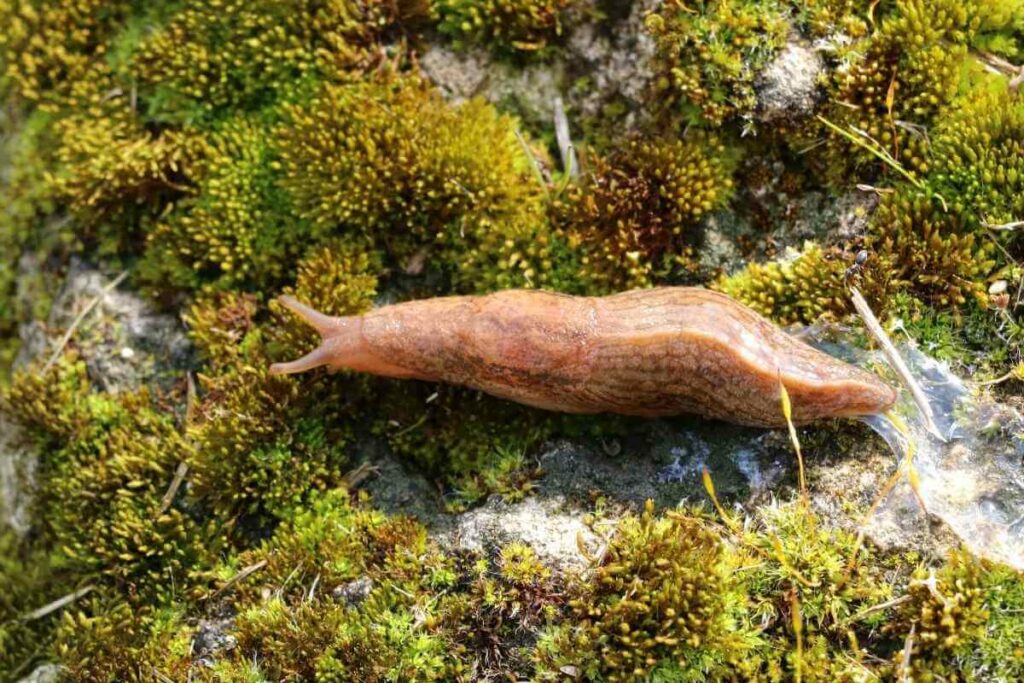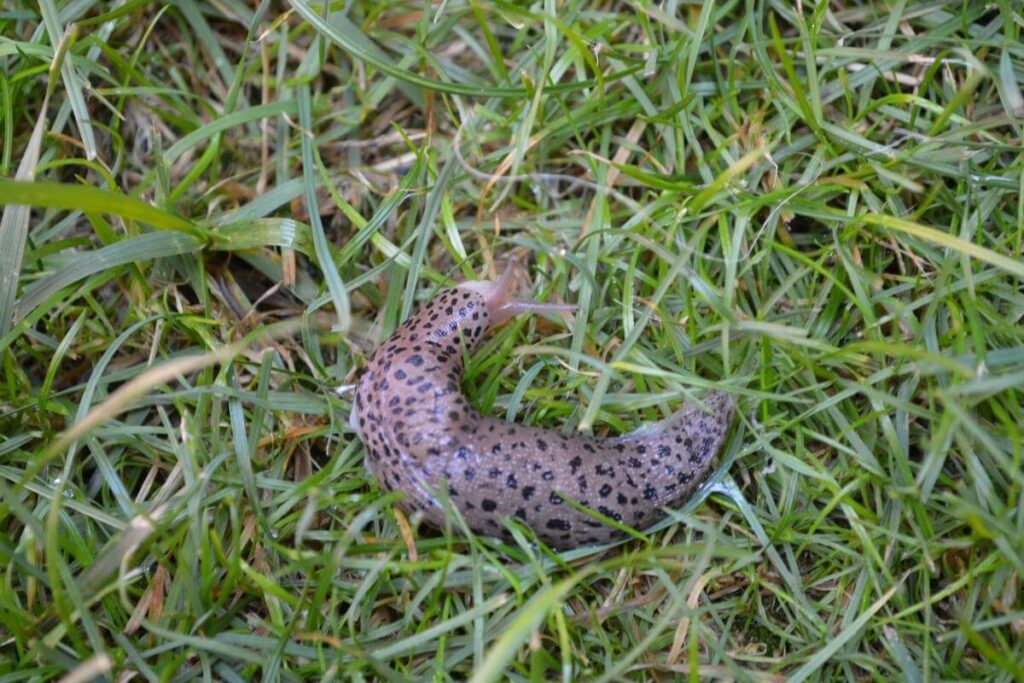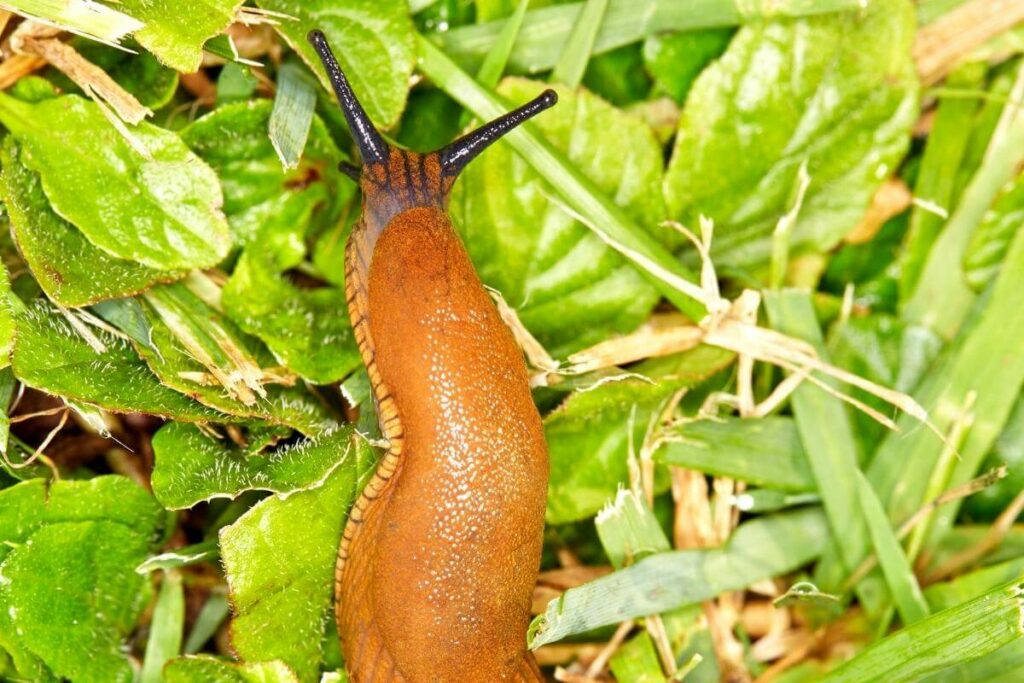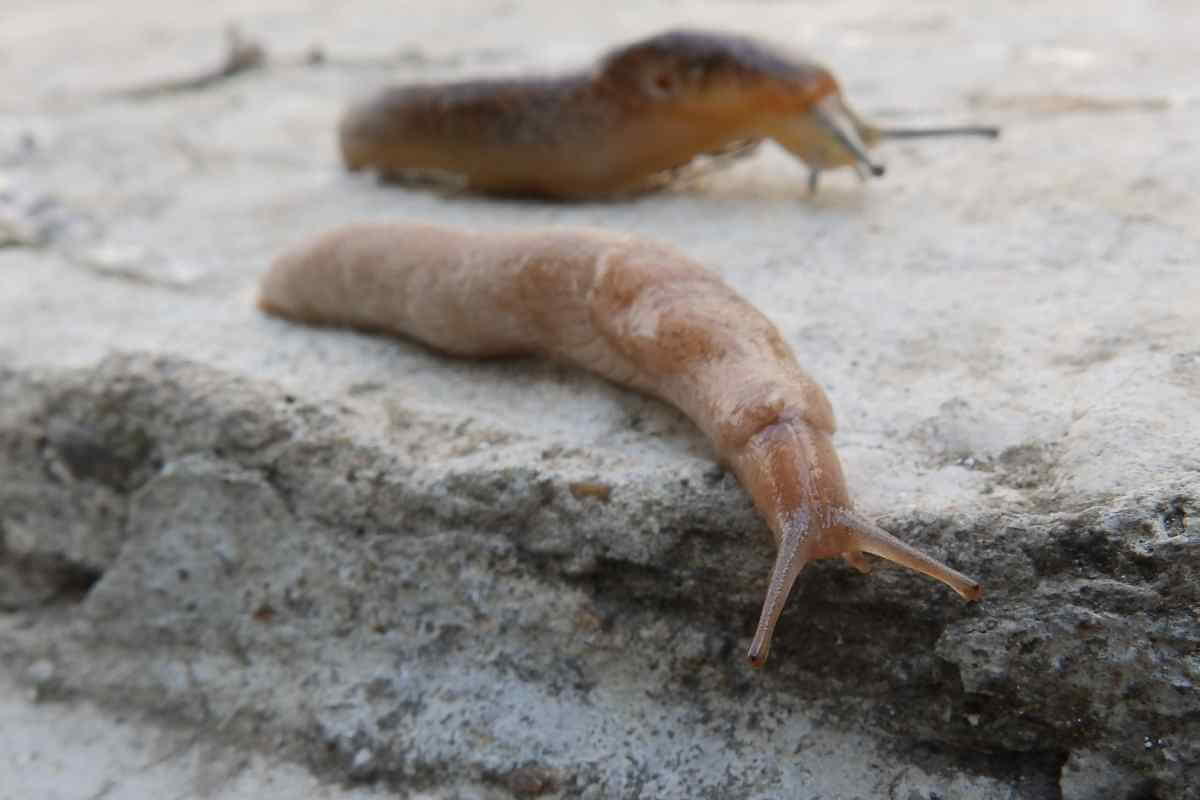Slugs have thousands of teeth. Like a circular drill bit, the tooth-packed radula literally rasps off the slug’s food so it can be swallowed and digested easily.
The teeth of a slug make it a highly efficient eater of the tender plants you grow, with only a few of these molluscs being capable of doing large amounts of overnight damage in your garden.
Though slugs do not bite humans, they can cause genuine pain for anyone who wants to grow vegetables or other plants successfully.
Your Choice: If you are tired of them visiting your garden, read on for everything you need to know about the biting and chewing habits of the common slug and the best organic methods of evicting them from your garden.
A Quick Look at the Inside of a Slugs Mouth
For most people, the consideration of how slugs eat probably does not go beyond the sight of some nibbled lettuce leaves or disappearing seedlings.

But it is surprising just how well-formed a slugs mouth is.
Despite having a soft gelatinous body, slugs have a jaw and thousands of teeth.
Inquisitive scientists have been able to capture images of the slug’s mouthparts in action.
They do most of the eating with a flexible band called a radula that is lined with rows of thousands of tiny teeth. The word “radula” is Latin for “little scraper”
The radula is a common anatomical structure in all gastropods and like a tongue, it can move food from the front to the back of the mouth.
The radula works like a rasp, scraping off and breaking the food into particles for easy digestion.
The Natural History Museum has some outstandingly detailed electron micrograph images of rows upon rows of fang-like slug teeth!
The Unique Structure of a Slugs Mouth Means That It Is Adapted to Feed on Anything and Everything
Slugs are omnivorous with the generalist species being efficient detritivores and contributing to the recycling of nutrients from decaying matter.
Apart from plant material, you will find slugs availing themselves of worms, dung, fungus and even other slugs!
The unique radula enables slugs to graze by scraping food off all sorts of surfaces as well as taking a hearty bite, like this banana slug in action eating some mushrooms.
Slugs Can Wreak Havoc in Your Garden!
Slugs are feeding powerhouses and able to eat up to 40 times their body weight in a single day.
These opportunistic feeders can even make a sure escape by stretching their body length up to 20 times to squeeze through narrow gaps with a full belly.
According to the BBC, there are over 20,000 slugs in the average UK garden.
With such large numbers, it is easy to see how slugs can make short work of the fresh young growth in your raised beds.
Get Ready: Tackling slug activity requires a focused and sustained campaign, with war waged on multiple fronts to keep your precious crops safe.
Strategies for Keeping Slugs from Biting Your Plants, Fruit and Veg
The high numbers and sneakiness of slugs mean that it is almost impossible to eradicate them.
However, it is possible to control them effectively by using several tried and trusted organic techniques.
The use of organic slug control methods means that you do not need to turn to insecticides that may kill beneficial species that are present in your garden.

Here are some simple, organic-gardening techniques for controlling slugs.
Handpick Slugs Whenever and Wherever You See Them
You can head down to your garden or allotment at dusk to look for slugs that are emerging for a night of feeding.
Simply pick them up and drop them in a bucket of soapy water.
Beer Traps Will Leave Your Garden Slugs Sozzled
Sink a container that is partially filled with beer in your raised bed.
The smell of the beer attracts the slugs, which fall into the container and become trapped.
Check on your beer trap in the morning and dispose of the drunken molluscs!
Copper Can Deliver a Deterrent Shock to Slugs
Slugs and snails will not want to cross barriers made from copper as it carries a charge that causes them discomfort.
However, determined slugs may well just carry straight on and pass the barrier to access your plants.
Diatomaceous Earth Is an Effective Slug Deterrent
This powdered rock creates a nasty abrasive for slugs and snails that may even kill them if they cross it.
Sprinkle it liberally around your plants to create a barrier they will not want to cross.
Coffee Grounds Are a Cheap and Simple Slug Deterrent That Also Nourishes Your Plants
Coffee grounds scattered along your borders are another type of abrasive boundary that slugs will not want to travel over.
The coffee grounds are not only abrasive, but any caffeine that is absorbed from them can also kill the slugs.
Coffee grounds will breakdown, leaving no trace and boost your soil nutrition!
Nematode Parasites That Are Added to the Soil Are a Targeted Solution
Nematode worms are parasites that infect and kill slugs.

These worms are purchased as a dessicated preparation that is mixed in water and added to the soil.
When slugs visit a treated area they will become infected and die.
Get Your Backyard Ducks and Chickens to Gobble Them Up
Hens and ducks are experts at locating and devouring slugs.
Let them free range and hunt slugs during daylight hours in their lurking places under stones, logs or among leaf litter.
You will be rewarded with delicious eggs!
Rounding Up
It’s clear that with all those teeth, slugs are purpose-built to be highly efficient pests.
And with the numbers of slugs being so high, it can seem as if it is impossible to keep them from decimating your crops.
Using multiple control methods should bring your plants relief from the appetite of these toothy visitors.
